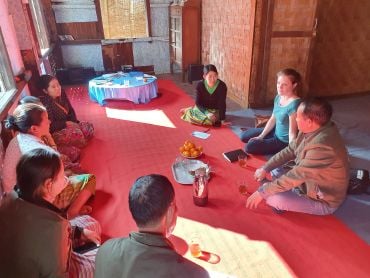Re-thinking Conflict, Building Peace
Research which has inspired new understandings of armed conflict and helped build peace.
 Focus group
Focus groupSecondly, in relation to building peace, what are the implications of transitions from war to peace for security architectures? Following requests by the Colombian government, Idler established the internationally recognized research programme: From Conflict Actors to Architects of Peace (CONPEACE). As Programme Director and PI of four projects hosted by CONPEACE, Idler leads a 10-people-team that examines changing security landscapes, e.g. on the double crisis of insecurity and humanitarian plight at the Colombia- Venezuela border.
Her success rests on two forms of process innovation: firstly, connecting, unusual interlocutors, namely diverging epistemologies, methodologies and disciplines (Conflict Platform); and different stakeholder groups including civil society, government, international community and academia (CONPEACE); secondly, combining fieldwork-based research with real-world application of knowledge in practitioner trainings (Conflict Platform) and civil society workshops (CONPEACE).
Her creative "out-of-the-box" approach has enabled product innovation by developing the following: Changing Character of Conflict Tool, interactive online visualizations, data analysis software, podcasts, UN training curriculum modules and civil society Best Practices guidelines. This has led to breakthrough innovations geared towards problem-solving. By co-designing practicable solutions with policy partners (UNSSC, UNHCR) to working towards the transformative goal of reducing human suffering, she achieved to innovate the beneficiaries’ thinking and behaviour: UN practitioners now account for the dynamic and cross-border character of conflict in their analysis and Colombian stakeholders from power centres and marginalized communities narrowed the gap between their respective understandings of security needs.
With the findings and outputs becoming widely available beyond the project lifetimes, this transformation catalyses open innovation, enabling a paradigm shift through co-production of further innovation based on new knowledge and practices.
Funders: British, Canadian, and Colombian governments, UK Research Councils, UK Global Challenges Research, HEFCE, Oxford-Berlin Partnership, Fritz-Thyssen Foundation, and a private donor.